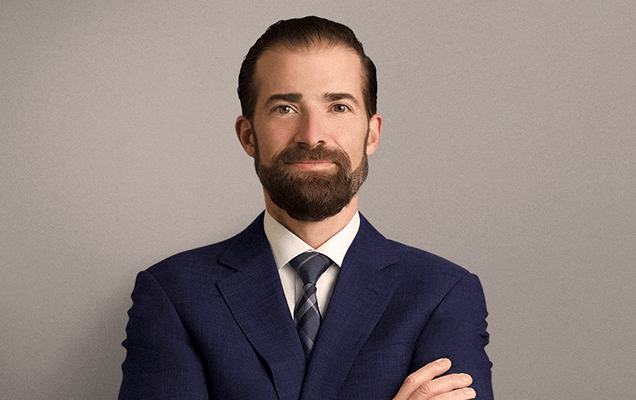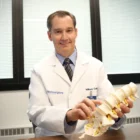Are you considering having microvascular decompression (MVD) surgery? If so, you’ve probably taken the first steps in preparing for this life-changing procedure — doctor’s appointments, diagnostics, etc. The next task on your checklist should be informing yourself of the financial commitments that will go along with MVD surgery.
The Whole Picture
You’re probably wondering at this point: How much does microvascular decompression surgery cost? Will there be a significant number of out-of-pocket expenses? Typically, the surgery itself will be the most costly aspect of your microvascular decompression. You can expect to be given a ballpark figure for the expert services of your surgeon(s) and the surgical team. Your surgeon may have already provided you with this number. This is an integral piece of information, but what about all the other costs? So that you don’t face any surprises (and know what questions you should be asking), here are some of the potential expenses that may be a factor in the bottom line.
Consultations
It’s possible you’ve seen a series of doctors and specialists before finally being referred for surgery. Once a proper diagnosis has been made and you’ve been cleared as a candidate for MVD surgery, you’ll be able to meet with your surgeon and his staff. Leading up to this point, you’ve likely seen your general practitioner and a neurologist. These visits should be factored into the overall outlay for your surgery.
Once you’ve been referred for surgery, you’ll consult with your surgeon(s) and possibly your anesthetist. Depending on your insurance deductible, these visits can range in cost from free to full fee. Be aware that at some point you may have to seek pre-approval from your insurance company to pursue surgical intervention.
Diagnostics
Diagnostics are an important part of preparing for surgery. Blood work allows the surgeon and his or her staff to review your individual needs; it also gives your anesthetist an excellent source of information so that he or she can custom tailor your anesthetic protocol.
Imaging procedures, such as the high-resolution FIESTA (fast imaging employing steady-state acquisition) MRI, are often necessary to qualify you as a candidate for microvascular decompression surgery.
Many insurance plans will cover a large portion of the cost of imaging, but it’s helpful to find out ahead of time how much of that bill you’ll be responsible for.
Post-Op Recovery
We’ve already covered the fact that the surgery itself is likely to be the largest part of your expenses, but what happens immediately afterward? Most surgical centers have a dedicated recovery area where you can wake from anesthesia in a fully monitored and carefully controlled environment. Recovery may or may not be included in the cost of your surgery — be sure to inquire so that you can factor in any separate charges.
Hospital Stay
Most microvascular decompression patients can expect a hospital stay of two or three days. You may require a little more time for in-house recovery; your surgeon can discuss his expectations for your stay during your consultation. Most hospital stays are not included with your surgery; it’s important to find out if this will be a separate charge. In addition to your own care during this time, you should remember to factor in child care or pet and house care that might need to be secured during your hospital stay.
Are you out of options
to eliminate your pain?
At Home
Once you’ve been released from the hospital, you’ll need some extra help while you heal from your surgery. If you need someone to come in and take care of the details while you focus on recovery, be sure to consider this a surgical care expense. Budget ahead of time so that you won’t be caught with an additional cost you weren’t expecting. If you’ll need transportation home, arrange that ahead of time, in addition to any checkups you may need someone to drive you to. There are services that provide nothing but non-emergency medical transport. The same goes for child care or additional help you wouldn’t otherwise seek out, such as cleaning or yard maintenance. These are costs many people forget to factor into their overall surgery budget.
Follow-Up Care
Your surgeon will want to see you at regular intervals in the first few months after your surgery to make sure everything is healing properly and you’re on track for full recovery. Depending on the practice, you may or may not have already paid for these services when you paid for your surgery. Typically, any additional imaging will carry a charge — most of this should be picked up by your insurance.
Get Ahead of the Game
Before you’ve committed to having your surgery, you have the right to ask for itemized estimates of all services and associated costs. Many practices will be able to provide you with a “low/high” estimate, which essentially takes every facet and possibility into account. These types of estimates are helpful in that they can prepare you for the worst-case scenario. It also allows your surgeon and involved facilities to receive preauthorization from your insurance company. Doing this lets you plan for any out-of-pocket expenses.
Once all added up, the numbers may be intimidating at first, but consider what your investment now can bring you in the future. It is important to think how much does microvascular decompression surgery cost, but try not to stress about it. Remember you can’t put a price on your health, quality of life and well-being

About Dr. Anthony D'Ambrosio
Dr. Anthony D'Ambrosio is an accomplished neurosurgeon in North Jersey and a proud member of Neurosurgeons of New Jersey practicing primarily out of their Ridgewood office conveniently located on East Ridgewood Avenue. Dr. D’Ambrosio focuses his clinical practice on brain tumors, nervous system disorders, and facial pain disorders. He has expertise in a variety of complex surgical and radiosurgical techniques as well as minimally invasive procedures intended to successfully treat complex diseases of the brain. These techniques include micro-neurosurgery, microvascular decompression surgery and Gamma Knife radiosurgery. He's authored over 25 peer-reviewed journals and is the recipient of many awards.






